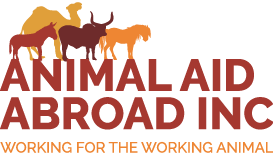APOWA July Update - 93 Animals Treated, 348 Vaccinated and Creating Compassion in Odisha
Action for Protection of Wild Animals (APOWA) is making a significant impact on the lives of working animals in rural Odisha. With a strong commitment to improving animal welfare and reducing suffering, the team is excited to share their latest progress.
In the past month, 93 animals, including bullocks and horses, were treated and received thorough health check-ups through the mobile clinic. The project also provided preventive vaccinations to 348 animals, helping to protect them from serious diseases.
The team is also ensuring a future that is compassionate and kind. This month, 38 animal owners benefited from APOWA’s helpline, receiving valuable advice and assistance from the veterinary team.
Education remains a key focus! The team conducted training sessions for 126 animal owners, covering important topics like nutrition, hygiene, and disease prevention, ensuring the working animals receive the care they need.
Here’s a quick look at the activities this month:
Mobile Vet Clinic: The team examined and treated 79 animals that lacked access to proper medical care. An additional 14 animals were examined, and their owners received advice on care.
Vaccination Drive: A total of 207 animals were vaccinated against Black Quarter (BQ) and 141 against Foot and Mouth Disease (FMD). The team continues this effort, aiming to reach all working animals in the project area.
Vet Helpdesk: Through the helpdesk, 38 animal owners received immediate advice and support from the vet, helping them address their animals' health concerns.
Follow-Up Visits:
The team also conducted follow-up visits to monitor the health of previously treated animals. They checked in on 34 vaccinated animals to ensure they were healthy and spoke with 14 owners who attended training sessions to assess the application of their new knowledge.
Recent Animal Treatment Highlights
The APOWA team has been hard at work in various locations, responding to calls and providing essential care for animals in need. Here's a snapshot of the cases we've treated recently:
Nilagiri: Several animals were treated for fever, dysentery, and stomach infections. Common causes included worm infections, viral fevers, and food poisoning. Some animals were affected by Lumpy Skin Disease (LSD) or developed high fevers after being drenched in rain while working in the fields.
Balasore: We treated animals suffering from worm infections and indigestion, primarily caused by consuming water grass.
Cuttack: Cases included cold, cough, fever, and stomach infections, often due to rain exposure or food poisoning.
In many instances, the team was called out to assist, ensuring animals received timely care even outside planned clinic locations. We're grateful to their commitment to responding wherever we're needed, providing relief to animals and peace of mind to their owners.
With our supporters' donations, the Working Animal Welfare Project continues to make strides in improving the lives of working animals. 🙏🐃











